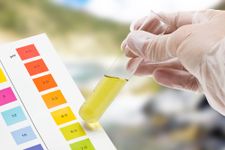Why You Should Have a Professional Test Your Well Water

If you get your water from a private drinking well, it’s important to stick to a regular testing schedule. Testing regularly not only ensures the quality of your water is safe, but it also checks the effectiveness of your treatment system. Even though at-home tests are available, getting a professional water testing is more thorough.
What Kind of Contaminants Might Be in My Well Water?
Multiple substances can make your well water unsafe to drink. From animal solids to runoff from pesticide spraying, the list can be long. Coliform bacteria, E. coli, nitrates, and volatile organic compounds can all be dangerous for members of your family, especially children, causing potential diseases. Different metals can also leach into your well water from rocks or nearby pipes and cause kidney damage or blood disorders.
How Often Should I Get My Well Water Tested?
 Water testing for bacteria and E. coli should happen at least once a year. If you have recently had repairs done or gotten new piping, you may want to test again to be sure the water is clean of any residual chemicals. Due to the amount of water that infants drink on a day-to-day basis, it’s also essential to test for nitrates if you are currently pregnant; a high concentration of nitrates in infants can affect the way their blood cells carry oxygen. While a home test might tell you there is a contamination, it generally won’t tell you how much. This is why it’s imperative to hire a professional for water testing.
Water testing for bacteria and E. coli should happen at least once a year. If you have recently had repairs done or gotten new piping, you may want to test again to be sure the water is clean of any residual chemicals. Due to the amount of water that infants drink on a day-to-day basis, it’s also essential to test for nitrates if you are currently pregnant; a high concentration of nitrates in infants can affect the way their blood cells carry oxygen. While a home test might tell you there is a contamination, it generally won’t tell you how much. This is why it’s imperative to hire a professional for water testing.
If your drinking water is overdue for testing, contact Hartmann Well Drilling & Service. They have been providing expert well drilling and water testing to New Prague, MN, since 1932. From well installations to geothermal heat pump maintenance, they can help. Call (952) 758-2202 today to schedule a free consultation, or visit them online to learn more about water testing.
About the Business
Have a question? Ask the experts!
Send your question

